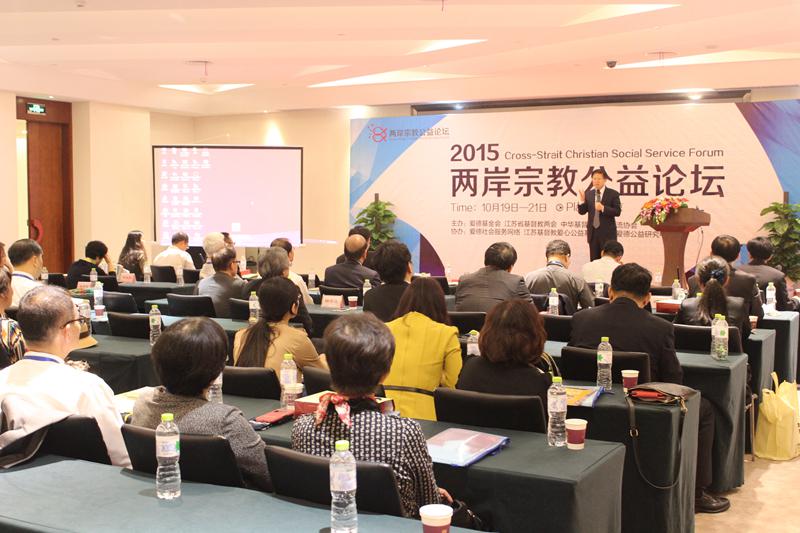The tradition that Christianity engages in philanthropy has a long history. However, it is not an easy thing to glorify God and edify people. P. Shi Li of Jiangsu CCC&TSPM believes as it is said that "if you want to go fast, walk alone; and if you want to go far, walk together." Chinese Christians need to have belief as their support system and cooperate with other churches to carry out philanthropy.
On the first Cross-Strait Christian Social Service Forum held in Nanjing on Oct. 20, Shi shared his perspective on church philanthropy in three aspects: the reason why Christianity has engaged in philanthropy, Christian philantrophy’s development status and the direction of its development.
First of all, the reason why Christians have engageg in charity activities is to obey the instructions of the Bible. Just as Jesus said, "Just as the Son of Man did not come to be served, but to serve." It is the practice of faith, "Not to be Served but to Serve " and the lesson of practicing Jesus's love, which has an important significance in promoting the development of the economy and society.
Secondly, Shi thinks Chinese churches have been seeking the Chinese own logical way in Chinese history under the background of Chinese history and culture since Chinese churches began the Theological Reconstruction of the Christian religion in 1998. Chinese Christianity is to combine "faith" with "action" closely. So churches have been promoting social service all the time as a testimony of Christian faith. In the past twenty years, by faith, Jiangsu local churches carried out he charitable programs like the Home for the Aged and clinics to provide services for the surrounding communities according to their conditions and abilities.
Thirdly, although local churches know more about doing social service, in Shi's eyes, these problems exist in the philanthropy of Jiangsu Province, such as imbalanced growth in districts, lacking standardized management and system, lacking professional practitioners, enough funds and necessary equipment support and decentralized service programs.
Shi says, the main direction of global development is "unity, peace, harmony and cooperation." Chinese churches should have good "cooperation within churches, cooperation between churches and the government, churches and social organizations, churches and the universal churches even cooperation with different religions " under the principle of accepting each other, mutual tolerance, agreeing to disagree and common development.
"As Chinese church social services are developing and going deep, it is an urgent and important matter to solve the cooperation between 'faith and specialization'" Shi holds.
Take the Amity Foundation as an example. The Amity Fondation, a non-government institution created by Chinse Christians, has a natural connection with churches. It has gained rich social service experience in the fields of community development and sanitation, rural education, and social service. It has supported the churches of thirteen provinces to carry out social service programs in the areas of medical sanitation, education, agriculture and drinking water, which results in good social effects.
In April, 2009, Jiangsu CCC&TSPM and the Amity Foundation founded the "Jiangsu Christian Charity Fund," which aims at promoting social service development, churches to play a positive role in China’s economic and social development and the harmonious development of churches and the society.
Shi says in the past six years, the Charity Fund also solved realistic problems that exist in the Jiangsu churches. The first one being the sharing the work of clergymen in Jiangsu, the second is specializing the church social service programs, that is to say, overcoming the lack of the church specialists in social service.
In the end, Shi holds that although there are challenges in Christian philanthropy, the future will be good. "We must continue doing religious charity and we have the ability to do it. Despite the difficulties, we believe that we can do it well. "Shi cited the sentence spoken by professor He Husheng of Renmin University of China.















